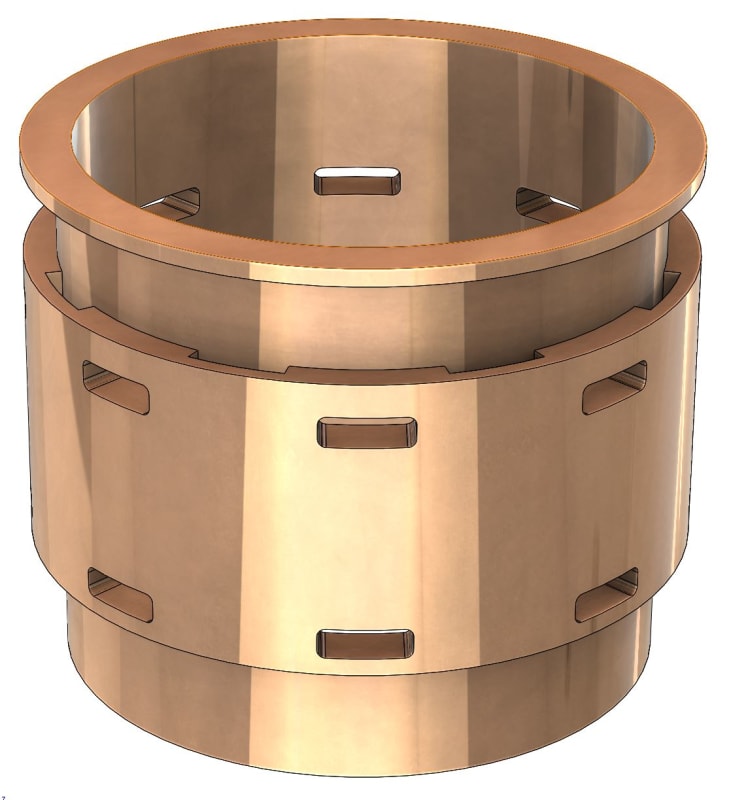Over the course of my lifetime I have seen engine oils drop in viscosity, 30 – 50 wt many decades ago to 0-20 or even lower in some of the new cars.
I have also seen better cooling of engines. You do not see overheated cars and trucks on the side of the road as often. While the volumes of coolant has dropped
Both of these are the incremental advances in engine technology, better machining of components, CFD of the cooling circuits and all the other factors in engine design.
My thought is to take advantage of both of these items. What if the fuel can be used for cooling, lubrication and fuel.
The design
Diesel fuel is pumped to the coolant loop, OK the specific heat of the diesel is less than water and glycol but increase the flow rates and port sizes and enlarge the radiator. A counter argument will that not make the engine more prone to fires? No, most engine fires are ignited from a leak in the coolant loop, not the fuel. Make sure the coolant components are upgraded to handle fuel.
As fuel is needed, some of the coolant loop is pumped out and moved the lubrication loop, OK be sure to have a good series of filters there. The lubrication loop now may need some modification in pressure and flow rates, but that has already been taking place, just need to step it up a notch.
As fuel is needed, pull it out of the lubrication loop. Again, have a good series of filters there.
Now what you have is an engine that has just 1 liquid to operate and maintain. OK you may need some DEF for emissions. That engine has a constant oil change, and a constant coolant change reducing the maintenance to just filters (and maybe dump some sludge out of the drain pan but then again that sludge may never form since it is in constant flow.)
This engine will never run out of coolant or lube oil since level controllers will stop the engine when the fuel tank is empty.
Granted this will take a lot of R&D which is not in my expertise area, and the big engine manufacturers will not want this kind of engine on the market, since both maintenance and lack of maintenance are big profit centers for them.
Please poke holes in this thought
Is somebody already doing this?
Hydrae
I have also seen better cooling of engines. You do not see overheated cars and trucks on the side of the road as often. While the volumes of coolant has dropped
Both of these are the incremental advances in engine technology, better machining of components, CFD of the cooling circuits and all the other factors in engine design.
My thought is to take advantage of both of these items. What if the fuel can be used for cooling, lubrication and fuel.
The design
Diesel fuel is pumped to the coolant loop, OK the specific heat of the diesel is less than water and glycol but increase the flow rates and port sizes and enlarge the radiator. A counter argument will that not make the engine more prone to fires? No, most engine fires are ignited from a leak in the coolant loop, not the fuel. Make sure the coolant components are upgraded to handle fuel.
As fuel is needed, some of the coolant loop is pumped out and moved the lubrication loop, OK be sure to have a good series of filters there. The lubrication loop now may need some modification in pressure and flow rates, but that has already been taking place, just need to step it up a notch.
As fuel is needed, pull it out of the lubrication loop. Again, have a good series of filters there.
Now what you have is an engine that has just 1 liquid to operate and maintain. OK you may need some DEF for emissions. That engine has a constant oil change, and a constant coolant change reducing the maintenance to just filters (and maybe dump some sludge out of the drain pan but then again that sludge may never form since it is in constant flow.)
This engine will never run out of coolant or lube oil since level controllers will stop the engine when the fuel tank is empty.
Granted this will take a lot of R&D which is not in my expertise area, and the big engine manufacturers will not want this kind of engine on the market, since both maintenance and lack of maintenance are big profit centers for them.
Please poke holes in this thought
Is somebody already doing this?
Hydrae

